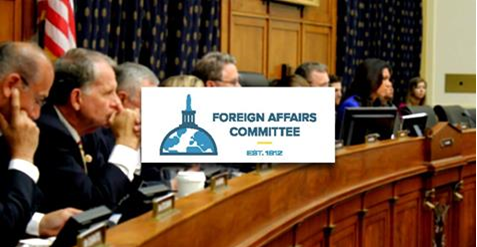US Continues to Support Georgia’s Sovereignty and Territorial Integrity
On July 14th, the U.S. House of Representatives’ Foreign Affairs Committee unanimously passed a bipartisan Resolution (H.Res.660) in support of Georgia’s territorial integrity. The Resolution, led by Co-Chairs of the U.S. House Georgia Caucus — Ted Poe (R-Texas) and Gerald Connolly (D-Virginia), had bipartisan support and was co-sponsored by 31 members — both Republican and Democratic members of the House of Representatives.




As a next step, the Resolution will be put to a vote at the Plenary Session of the U.S. House of Representatives in the fall of 2016. The Resolution will need majority support for its passage.
The Resolution is one of the most important reflections of the U.S.’s backing of Georgia and its territorial integrity. It reiterates the high level of U.S. political support towards Georgia.
The Resolution urges the U.S. Government to unequivocally support the sovereignty and territorial integrity of Georgia and continue its non-recognition policy, similar to that successfully implemented vis-à-vis the Baltic States — namely, Estonia, Latvia and Lithuania. Since the first day of the Soviet occupation of the Baltic States, the U.S. never recognized those states as part of the USSR.
According to the Resolution, the United States will not, under any circumstances, recognize the de jure or de facto control of the Russian Federation over any part of Georgia, its airspace, or its territorial waters, including Abkhazia and Tskhinvali region/South Ossetia.




The Resolution condemns the military intervention and occupation of Georgia by the Russian Federation and its continuous illegal activities along the occupation line in Abkhazia and Tskhinvali region/South Ossetia. It calls upon the Russian Federation to withdraw its recognition of Georgia’s territories of Abkhazia and Tskhinvali region/South Ossetia as independent countries, to refrain from acts and policies that undermine the sovereignty and territorial integrity of Georgia, and to take steps to fulfill all the terms and conditions of the August 12, 2008 Ceasefire Agreement between Georgia and the Russian Federation. The Resolution also stresses the necessity of progress on core issues within the Geneva International Discussions.
At the same time, The White House announced an enhancement of U.S. bilateral security assistance to Georgia to increase the defense capacity and NATO interoperability of its forces:
“In FY15, the United States committed an additional $20 million in Foreign Military Financing through the European Reassurance Initiative, bringing Georgia’s security assistance up to $30 million. Security assistance to Georgia remains high in FY16, and is projected to remain so in FY17”.
The Security and Defense Working Group which met under the U.S.–Georgia Strategic Partnership Commission on July 20th, underlined the importance of the recently signed Memorandum on Deepening the Defense and Security Partnership between the U.S. and Georgia. Both sides committed to deepening cooperation in the areas of defense readiness, counterterrorism, border and maritime security, defense and security institutional reform, cybersecurity, counternarcotic, law enforcement, and crisis management in order to achieve the shared goal of increasing Georgia’s resilience and self-defense capabilities. In the joint statement the sides underlined that a durable and strategic approach to defense and security cooperation increases the security of both countries and positively impacts regional stability and global security.




Earlier, on July 5th, The OSCE — The Organization for Security and Co-operation in Europe Parliamentary Assembly overwhelmingly supported the 17-point draft resolution on “Conflict in Georgia” at its session in Tbilisi. Out of 57 participating countries, 56 voted in favor of the resolution, with only the Russian Federation voting against. Through the document, the PA stressed that Russia continued to violate international law and the rights of Georgian citizens living in and near the occupied regions, and called on the OSCE to intensify its efforts to ensure peace in Georgia.
Georgia continues to face the constant pressure of ongoing occupation of Abkhazia and Tskhinvali Regions and “creeping borderization” from Russian military forces as a result of 2008 August War. The continued support of the international community for Georgia’s territorial integrity is of utmost importance.
